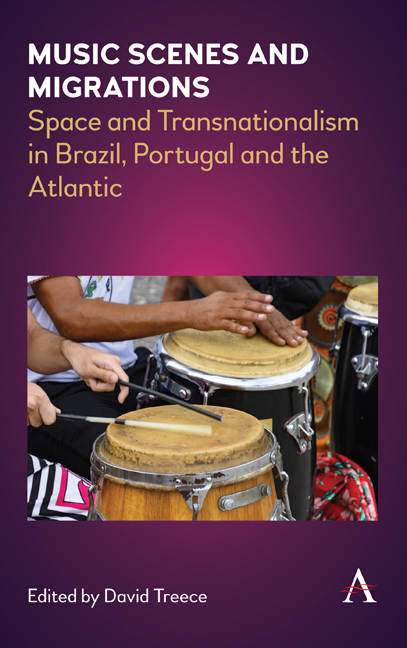Book contents
- Frontmatter
- Contents
- List of Illustrations
- Acknowledgements
- Introduction
- Part 1 Colonial and Postcolonial Transnationalisms, Migrations and Diasporas
- Part 2 Relocating Rio de Janeiro
- Part 3 Demetropolitanizing the Musical City: Other Scenes, Industries, Technologies
- Notes on Contributors
- Notes
- References
- Index
Chapter 3 - Música caipira and Rooting
Published online by Cambridge University Press: 20 January 2022
- Frontmatter
- Contents
- List of Illustrations
- Acknowledgements
- Introduction
- Part 1 Colonial and Postcolonial Transnationalisms, Migrations and Diasporas
- Part 2 Relocating Rio de Janeiro
- Part 3 Demetropolitanizing the Musical City: Other Scenes, Industries, Technologies
- Notes on Contributors
- Notes
- References
- Index
Summary
This chapter discusses the role played by the music ofa specific sector of Brazilian society – the caipira peasantry – inreplanting the roots of their culture in the bigcities. For a better understanding of thesignificance of this music, we need to retrace itsorigins and consider those who brought it intobeing: the caipiras, the peasant people ofsoutheastern Brazil. Caipira is a term deriving fromthe Amerindian Tupi language, which means trimmer or cutter, one who cuts brush,and so defines their position socio-economicallywithin a rigidly stratified society.
The colonization of southeastern Brazil dates from1549, when the São Vicente Captaincy, formallyestablished in 1532, began to be effectively settledby the Portuguese. Colonial dominance was exercisedthrough a tripartite system of ecclesiastical,juridical and political structures expressed in theformula Fé, Lei e Rei(Faith, Law and King). Leading the Church'smissionary project was the Society of Jesus, whosefunction was to convert all gentios, or non-Catholics, toChristianity, and its most prominent representative,Father José de Anchieta, arrived on Brazilian soilin 1553 (Thomaz 1981).
Encountering Amerindian peoples who spoke dialects ofthe Tupi-Guarani linguistic family, extending thelength of the Atlantic coast from today's state ofPará to Rio Grande do Sul, Anchieta decided to learnand study the language. Adapting it to Latingrammatical structures and adding Portuguese andCastilian terms for objects and concepts not foundin the indigenous peoples’ cultural universe, hehelped to systematize what was to become Nheengatu (‘easy’ or ‘goodlanguage’), known in Portuguese as Língua Geral(Common Tongue), which functioned as a coloniallingua franca universally spoken by colonists,indigenous people and African slaves up to the late1700s: ‘Then a ruling from the Kingdom prohibitedthe língua geral frombeing spoken in Brazil […] despite this, until theend of the eighteenth century, the língua geral was the onlylanguage spoken from São Paulo to Rio Grande do Sul;and during the eighteenth century, Nheengatu wasspoken twice as often as Portuguese’ (Paulo Duartecited in Amaral 1976a, 13).
- Type
- Chapter
- Information
- Music Scenes and MigrationsSpace and Transnationalism in Brazil, Portugal and the Atlantic, pp. 31 - 42Publisher: Anthem PressPrint publication year: 2020



